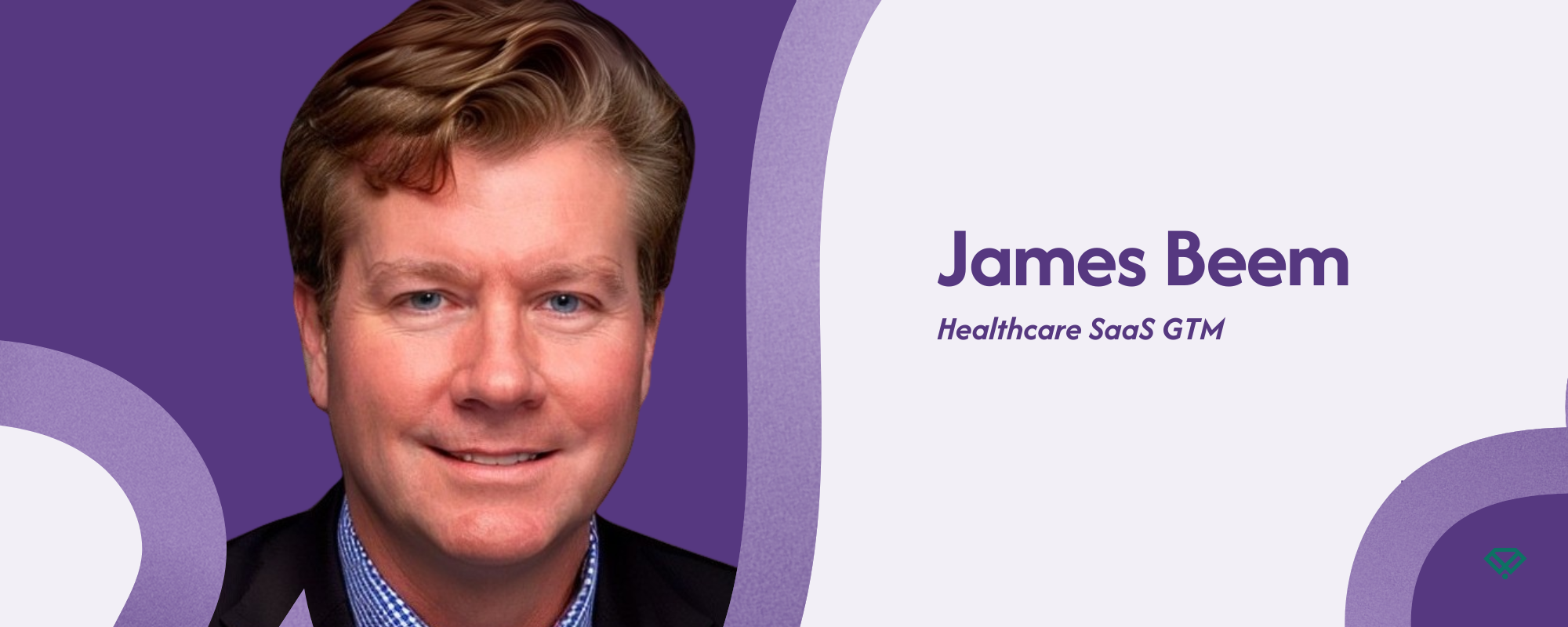Executive Spotlight: James Beem
From Fortune 100 to Startup Mentor: How James Beem Helps Healthcare Innovators Scale
James Beem has built his career at the intersection of data, technology, and healthcare. With leadership experience at Humana, Walgreens, and IBM Watson Health, he has witnessed firsthand how analytics and predictive modeling can transform care delivery. Today, as a trusted advisor to multiple startups, he brings that same expertise to the next generation of healthcare innovators, helping them navigate complex challenges, avoid costly missteps, and focus on solving the right problems.
Q: You’ve served as an advisor for multiple startups and healthcare innovators. What do you enjoy most about advisory work versus traditional executive roles?
James Beem: In advisory roles, the impact is broad and strategic. You help shape multiple organizations simultaneously rather than being deeply operational in one. It’s rewarding to provide guidance that helps startups navigate challenges without being tied to the day-to-day execution. I also enjoy mentoring founders and seeing how fresh perspectives drive innovation.
Q: What’s one misconception about advisory work?
James Beem: That it’s purely about connections. While networks are valuable, the real impact comes from helping founders refine their strategy, avoid pitfalls, and build sustainable business models. The best advisors roll up their sleeves and bring experience to the table, not just contacts.
Q: What’s a leadership lesson you learned the hard way?
James Beem: That the best ideas don’t always win. Execution and timing matter just as much. Early in my career, I saw strong initiatives fail because teams weren’t aligned, or the market wasn’t ready. Now, I focus as much on change management and stakeholder buy-in as I do on the strength of an idea itself.
Q: Having worked with major players like Humana, Walgreens, and IBM Watson Health, what was the most pivotal career moment that led you to where you are today?
James Beem: Moving from traditional managed care to analytics-driven decision-making was a game-changer. My transition to roles focused on data, technology, and predictive modeling reshaped my perspective on how healthcare can be transformed. Understanding the power of AI/ML in risk prediction and value-based care was pivotal.
Q: What’s one piece of advice you find yourself giving startups over and over?
James Beem: “Focus on solving the right problem, not just building a great product.” Many startups get caught up in technology and features, but success comes from understanding and addressing real pain points in healthcare, whether for payers, providers, or patients.
Q: What’s the biggest challenge leaders face in driving healthcare innovation today?
James Beem: Balancing innovation with adoption. The healthcare industry is risk-averse and highly regulated, which makes scaling new ideas difficult. Leaders must bridge the gap between groundbreaking innovation and practical implementation that aligns with policy, reimbursement models, and clinical workflows.
Q: What’s your approach to helping startups scale effectively in the healthcare space?
James Beem: I emphasize three things:
Clear ROI and value messaging — healthcare buyers need proof that a solution improves outcomes or reduces costs.
Strategic partnerships — startups should leverage existing networks instead of trying to sell solo.
Regulatory readiness — understanding compliance and reimbursement early drives adoption.
Q: What’s one lesson from Fortune 100 leadership that applies to startups?
James Beem: Prioritization is key. Large organizations operate with structured roadmaps and disciplined execution, while startups often chase every opportunity. Learning to say no and focus on scalable opportunities is critical.
Q: If you could instantly master one new skill, what would it be and why?
James Beem: Probably coding or AI/ML development. While I understand these areas from a strategic level, having deeper technical fluency would make collaboration with data science teams even more effective.
Q: If your career had a theme song, what would it be and why?
James Beem: Maybe “Hold On” by Tom Waits—it’s about perseverance and pushing forward, which resonates in both corporate leadership and startup advisory work. Success in healthcare innovation requires resilience, optimism, and a willingness to challenge the status quo.
